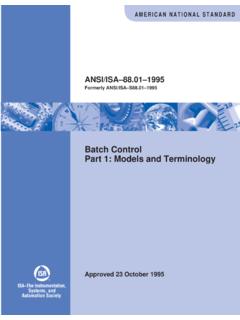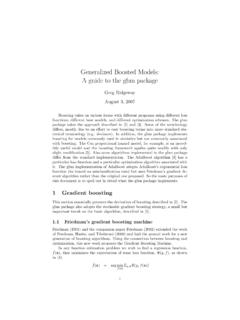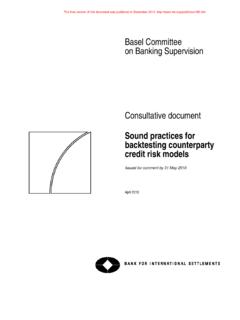Transcription of Information and advice Disability Terminology - Kent Athletics
1 Why use appropriateterminology?Using appropriate Terminology is purely anexpression of respect and is vital throughout all areas of athleticsso that we can ensure that all disabledpeople involved in Athletics in every areaand at every level are respected and is a common misconception thatterminology is always changing, and thephrase political correctness gone mad iswidely used, but the reasoning behindappropriate Terminology has not changedsince theDisability Discrimination Act(DDA) 1995 was Model vs Social ModelThe history of the Disability movement inthe UK has played an important part in thedevelopment of Terminology . With theintroduction of the Disability DiscriminationAct (DDA) 1995 we formally moved from aMedical Model to a Social Model. The Medical Model, by definitionconcentrated on what a person can t do because of their impairment.
2 This led to anegative association which consideredindividuals only by their impairment andwere therefore disabled by theirimpairment. The Social Model, developed and supportedby disabled people, shifted thinking toencourage society to be aware of whoseresponsibility it is to create an inclusiveenvironment in which everyone can relates to the physical environment, forexample ramps for wheelchair users, as wellas the need to change attitudes to ensurethat disabled people are not discriminatedagainst. Disabled people are thereforedisabled by society and this is somethingthat can by directly translated to must take responsibility for creating aninclusive environment and ensuring thatdisabled people are involved in a sport thatincludes and integrates. By adopting the Social Model to disabilityand using the functional approach toinclusion all disabled people can take partin Athletics to their full moved away from the MedicalModel, it is vital that we move away fromreferences in our language to anindividual s impairment, for example, awheelie good performance was a popularheadline, yet is inappropriate!
3 By using appropriate Terminology we arenot talking about being PC (politicallycorrect), we are referring to: Knowledge and experience of working inthe Disability field advice from disabled people themselves The natural evolution of language acrosstime and geographic areasChoosing language with careBear in mind that disabled people mightrefer to themselves or other disabledpeople using Terminology which would beconsidered unacceptable if a non-disabledperson used it, or even if another disabledperson used it and they weren t associatedwith the group. Be very careful not to justreplicate language you hear. It s importantto also remember that language or wordsmay not necessarily cause offense but theremight be a more appropriate word orphrase to 1 Information and adviceDisability TerminologyA brief guide to the correct terminologyUsing correct Terminology will have theknock-on effect of creating an inclusiveenvironment for disabled people; this is abrief guide to correct Terminology withinathletics: Paralympian / Paralympic Athlete someone who has competed at aParalympic Games Paralympic Pathway pathway open toclassifications and related events that areincluded in the Paralympic Games Disability Athletics the sport of athleticsin which a disabled athlete competes atany level.
4 The sport may or may not beadapted for the individual to take part. Disabled Athlete a disabled personparticipating in Athletics at any level Congenital Impairment an impairmentthat a person is born with Acquired Impairment an impairmentthat a person acquires at some pointafter birth Disability the way in which theimpairment affects the individual due tosocial constraints Impairment physical description Visually impaired people who are blindor partially sighted Learning Disability a reducedintellectual ability and difficulty witheveryday activities which affects someonefor their whole life Learning Difficulty affects the wayinformation is learned and processed butoccurs independently of intelligence , ADHD, Autism, AspergersInformation and advice : Disability Terminologypage 2 Not appropriate AppropriatePerson with a disabilityDisabled personWheelchair BoundWheelchair user Able-bodied NormalNon-DisabledHandicappedDisabledMen tally disabled Retarded/ RetardIntellectual/learning disabilityMentally illHas a mental health condition (state condition if known)Para-OlympianParalympian Suffers (state medical condition)DisabilityImpairmentFor more Information







